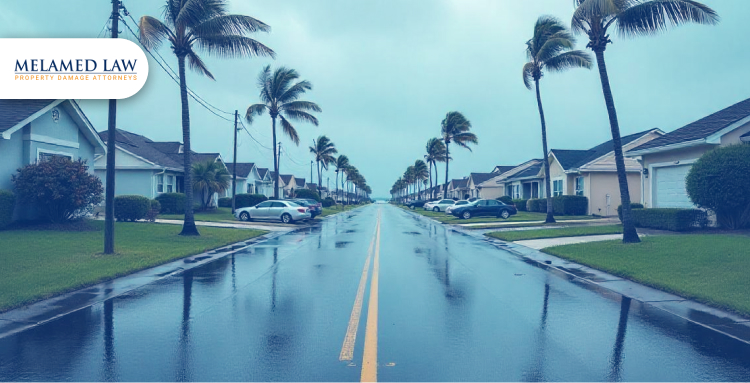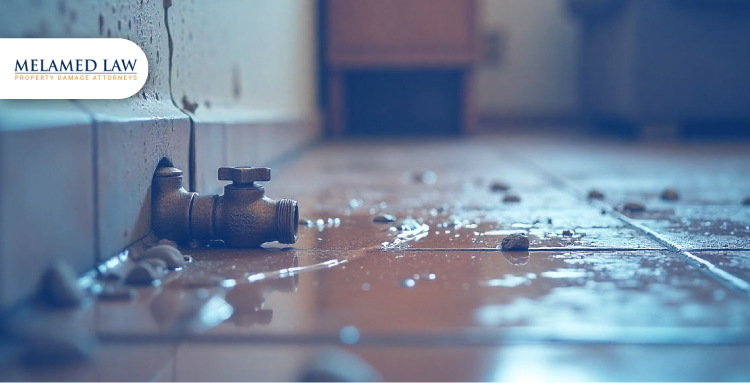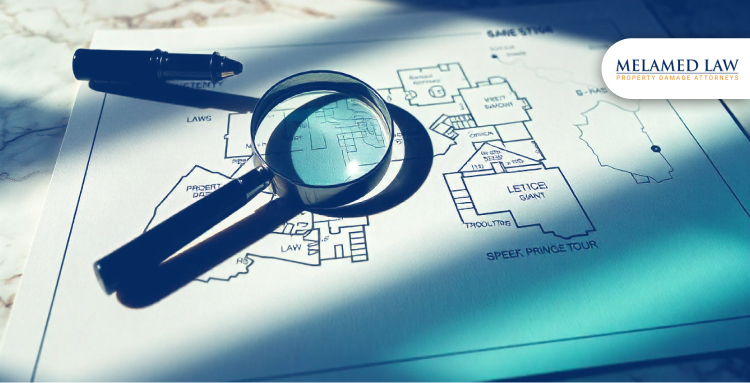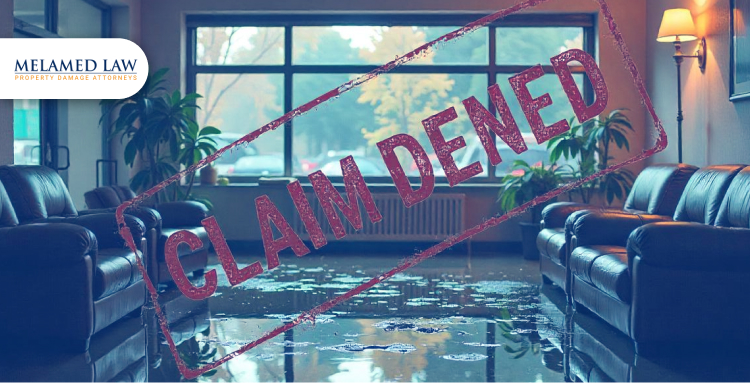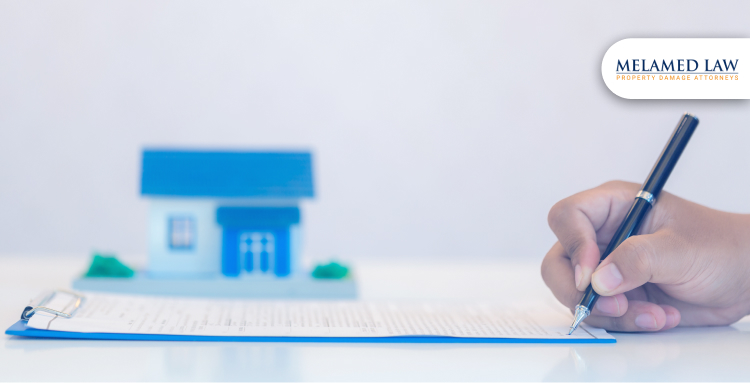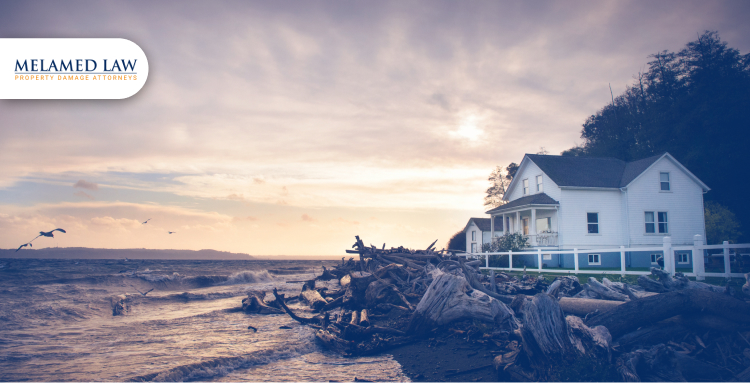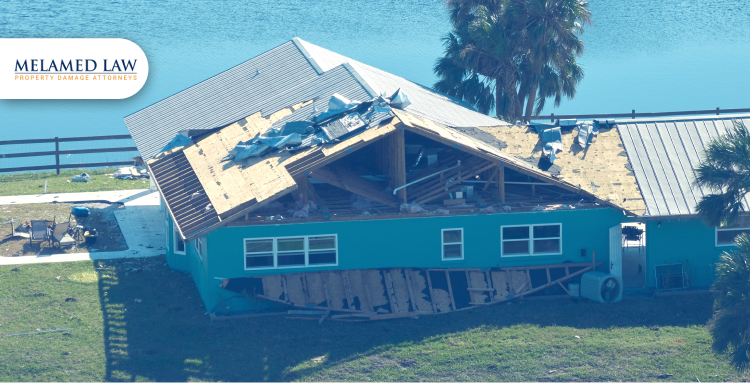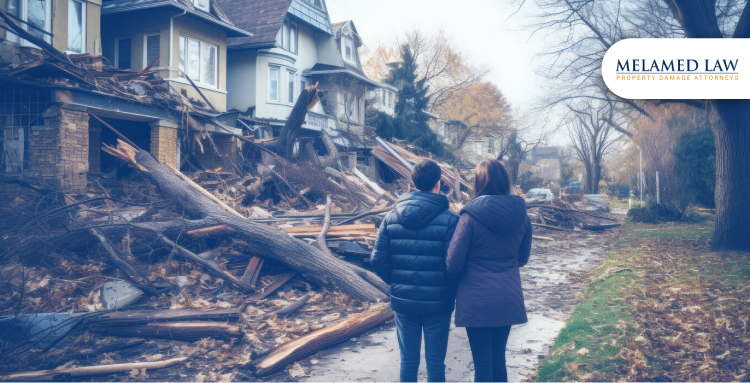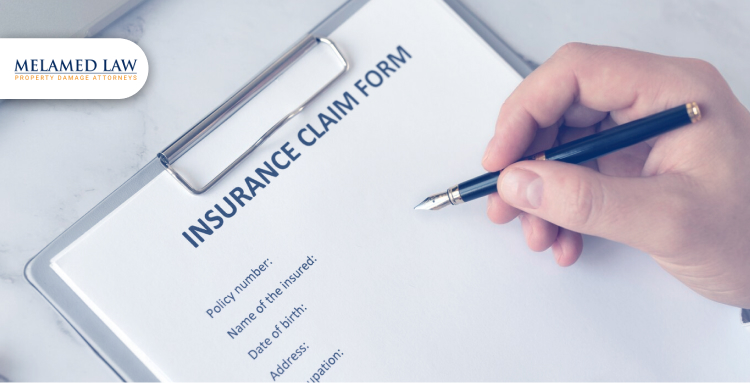
What are your tips for surviving a hurricane?
When the unexpected happens, we help individuals and businesses collect the money they deserve for their insurance claims.
Melamed Blogs
January 21, 2025
What are your tips for surviving a hurricane?

Living in Florida means preparing for hurricane season, which isn’t just a once-a-year task—it’s a reality that can hit at any moment. The winds pick up, the skies darken, and suddenly you’re facing the unpredictable power of Mother Nature. However as the storm passes and the dust settles, the aftermath can leave you feeling just as unsettled, especially when it comes to handling the legal side of hurricane damage.
Whether it’s dealing with insurance claims, property loss, or the frustration of complicated paperwork, it’s easy to feel swamped. But don’t worry— we’re here to walk you through everything you need to know to protect your home, keep your family safe, and face the storm head-on.
1) Building Your Hurricane Emergency Kit: Essentials for Safety and Comfort
When a hurricane is approaching, having a well-prepared emergency kit can ensure you have everything you need if conditions worsen. You can start with :
Gathering essential supplies
Basic supplies like non-perishable food and enough water for at least three days—aim for one gallon per person per day. Include flashlights, a first-aid kit, extra batteries, and hygiene items like soap, hand sanitizer, and toilet paper. These basics will cover immediate needs if access to stores is limited.
Additional Needs for Family Members
Consider any specific items that you or your family may need during a hurricane. Be sure to pack prescription medications, and gather important documents—such as insurance policies, ID, and medical records—in a waterproof container to protect them from water damage. If you have children, pets, or elderly family members, include items tailored to their needs, like baby formula, pet food, or extra medical supplies.
Organizing and Storing Your Kit
Store your emergency kit in an accessible location that everyone in your household knows. Make it a habit to check and update the kit at the start of each hurricane season, replacing any expired items and ensuring everything is in working order. Having a well-organized kit in a reliable spot will save precious time if a hurricane hits.
2) How to Create a Family Emergency Plan for Hurricanes

Having a family emergency plan can greatly reduce stress and confusion during a hurricane. Start by identifying the safest evacuation routes from your home and knowing the locations of nearby shelters. Make sure all family members are aware of these routes and any specific evacuation orders that may be given by local authorities. It's also wise to plan for different scenarios—such as the need to leave quickly—so everyone understands what to do.
Establishing a communication plan is equally important. In the event you become separated, having a reliable way to get in touch will provide reassurance. Designate a meeting point and make sure everyone has important contact information, including the numbers of emergency services and shelters.
Consider using a group messaging app or a designated out-of-town contact who can relay messages if local cell service is disrupted. With these preparations, you can stay connected and protect each other, no matter what happens.
3) Staying Informed: Get Real-Time Hurricane Updates
Keeping yourself informed during hurricane season is crucial for making the best decisions to protect your family and home. Rely on trusted sources for weather updates, such as the National Hurricane Center, local news channels, and emergency alert systems. Regularly checking these sources will keep you aware of any changes in the storm’s path or intensity and help you if needed.
Take advantage of technology by setting up alerts on weather apps or subscribing to notifications from local news stations. This ensures you receive real-time updates, even when you’re on the go.
Understand the difference between hurricane watches and warnings. A watch means that hurricane conditions are possible within the specified area, typically within 48 hours, giving you time to prepare.
A warning, on the other hand, indicates that hurricane conditions are expected, usually within 36 hours, and immediate action may be necessary. Knowing these distinctions can help you respond appropriately as a storm approaches.
4) Securing Your Home Against High Winds and Floods

Protecting your home from hurricane damage begins with reinforcing vulnerable areas. For windows and doors, consider using storm shutters, or if that isn't an option, securely board them up with plywood. This helps prevent broken glass and damage caused by high winds or flying debris. Make sure all doors are properly latched and, if possible, reinforced to withstand strong gusts.
Take a few moments to secure outdoor items like patio furniture, potted plants, and other loose objects, as these can quickly become dangerous projectiles in a storm. Either bring these items inside or anchor them securely.
For flood-prone areas, use sandbags to block water entry points and consider basement pumps to help remove any water that does get inside. Seal any gaps or cracks around doors and windows to further minimize potential property damage due to hurricanes.
5) Evacuation or Sheltering in Place: What You Need to Know
Understanding when to evacuate or stay put during a hurricane can be critical for your safety. If you’re advised to evacuate, it’s best to do so as early as possible to avoid congested roads and ensure you reach a safe location in good time. Follow the guidance of local officials, and be aware of designated evacuation routes and shelters in your area.
If you decide to shelter in place, choose a safe spot inside your home, preferably in an interior room on the lowest floor, away from windows and exterior walls. This will help shield you from strong winds and potential debris.
Keep your emergency kit and essential supplies within arm’s reach while you’re sheltering. This way, you’ll have quick access to food, water, and first-aid supplies if conditions worsen or you need to act fast.
6) How to Protect Important Documents and Valuables
Keeping important documents safe during a hurricane is essential.
Gather items like IDs, insurance policies, property deeds, and other critical paperwork.
Store these documents in waterproof containers to protect them from water damage.
Having intact documents can make post-storm recovery easier and less stressful.
Create digital backups for additional security.
Save copies of important documents in a secure cloud storage service.
This backup ensures access to critical information from any device, even if physical copies are lost or damaged.
7) Preparing for Utility Safety and Potential Power Outages
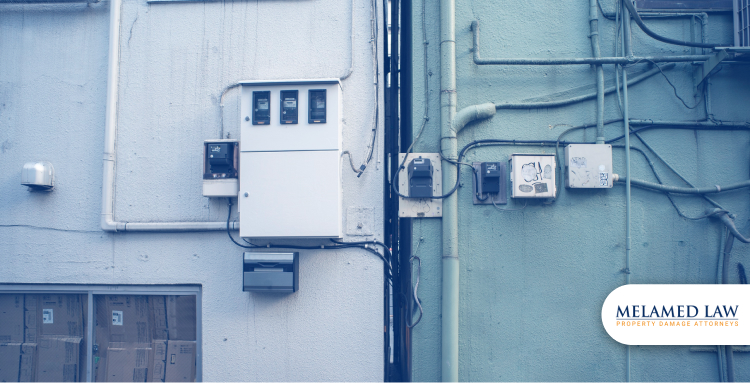
During a hurricane, knowing how and when to turn off your utilities can prevent further damage and keep your family safe. If advised by local officials or if flooding becomes a risk, be prepared to turn off your water, gas, and electricity. Make sure you know the locations of shut-off valves and switches, and follow safety procedures to avoid any hazards.
Power outages are common during storms, so it’s essential to be prepared. Stock up on candles, flashlights with extra batteries, and non-perishable food that doesn’t require cooking. This way, you’ll be able to keep your home lit, stay nourished, and maintain a sense of normalcy until the power is restored.
8) Staying Safe After a Hurricane: What Comes Next
Even after a hurricane passes, it’s crucial to stay alert and wait for official updates before venturing outside. Remain indoors until authorities give the all-clear, as dangerous conditions like high winds or flooding may still be present.
Once it’s safe to go out, exercise caution around hazardous areas. Be mindful of downed power lines, floodwaters, and scattered debris, as they can pose serious risks. If you’ve evacuated, follow guidance from local officials on re-entry procedures to ensure you return home safely and avoid potential hazards in the area.
9) Reviewing Your Hurricane Insurance and Financial Preparedness
Before hurricane season, take time to review your insurance coverage. Ensure that your policies for hurricane and flood protection are up to date and provide adequate coverage for your home and belongings. Having the right insurance in place helps you financially and makes it easier to claim damage recovery if a storm causes damage.
It’s also wise to be financially prepared for disruptions. Keep some cash on hand, as card systems or ATMs may be down during and after a hurricane. This will allow you to make necessary purchases even if electronic payment options aren’t available.
Melamed Law: Your Trusted Confidant For Hurricane Damage Claims
When a hurricane leaves its mark on your home or property, the last thing you want to worry about is the legal process. The paperwork, the red tape, and the stress of figuring out what comes next can feel like another storm in itself.
At Melamed Law, we’re not just here to handle your case—we’re here to guide you through every twist and turn, making sure you fully understand your rights and get the compensation you’re entitled to. Don’t navigate this storm alone. Reach out to Melamed Law today, and let us bring clarity when you need it most.
Recent Cases

